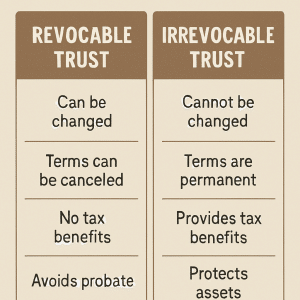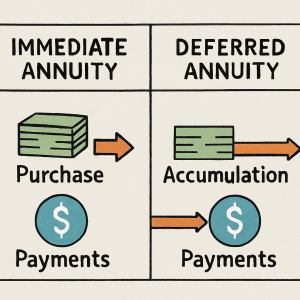Should I Buy an Annuity?
If you have ever asked yourself, "should I buy an annuity?" You are not alone. Annuities can be a powerful retirement tool—but they’re not one-size-fits-all.
Think of an annuity as insurance for your income or principal: you trade a lump sum or a series of payments for guaranteed income, guaranteed growth, or index-linked growth with downside protection. Whether you should buy one depends on your goals, risk tolerance, time horizon, and overall retirement plan.
Who Should Consider an Annuity
- You want income you can’t outlive. If you don’t have a pension or market volatility stresses you out, an income-focused annuity can cover essential expenses.
- You want principal protection with competitive yields. MYGAs (Multi-Year Guaranteed Annuities) offer bank-CD-like safety with tax-deferred growth.
- You’re maxing out other tax-advantaged accounts. Annuities provide tax-deferred accumulation beyond 401(k) and IRA limits.
- You want to reduce sequence-of-returns risk. Annuities can stabilize withdrawals so you’re not forced to sell investments during downturns.
- You value optional benefits like spousal continuation or enhanced benefits for care needs.
Who Might Not Need an Annuity
- You need high liquidity. Annuities have surrender periods; they’re not built for frequent in-and-out transactions.
- You’re comfortable with full market risk for higher upside. If volatility is fine and guarantees aren’t a priority, pure investment accounts may fit better.
- Your plan already provides ample guaranteed income and cash reserves. In that case, an annuity could be optional rather than essential.
What Type of Annuity Is Best for Me?
Start by defining the job: immediate income, principal protection with a rate, or growth with downside protection. Then match the annuity type to that job.
Immediate Annuity (Single Premium Immediate Annuity — SPIA)
Best when:
- You want guaranteed income starting now or within 12 months.
- You need to cover essential expenses alongside Social Security/pension.
- Longevity protection matters—income continues for life, no market risk.
- Simplicity is a priority; you’re okay trading liquidity for predictable cash flow.
Considerations:
- Payments are typically irrevocable; liquidity is limited after purchase.
- Payouts depend on age, rates, and optional features (e.g., period certain, joint life).
MYGA (Multi-Year Guaranteed Annuity)
Best when:
- You want a fixed, guaranteed rate for 3–10 years with principal protection.
- You prefer tax-deferred growth compared to taxable CDs.
- You need simple, predictable accumulation and annual penalty-free access (often up to 10%).
- Laddering terms appeals to you to manage rate risk and liquidity.
Considerations:
- Surrender charges apply for full withdrawals during the term.
- At the end of term, compare renewal vs. 1035 exchange options.
Fixed Index Annuity (FIA)
Best when:
- You want downside protection with potential index-linked upside.
- You plan to hold through the surrender period and value risk control.
- You may add a lifetime income rider for future, flexible guaranteed income.
- You prefer growth linked to indexes without direct market loss risk.
Considerations:
- Returns are subject to caps/spreads/participation rates.
- Complexity varies by crediting method and rider features—compare carefully.
How to Decide
- Define your primary goal: income now, safe accumulation, or protected growth.
- Align the annuity type to that goal (SPIA, MYGA, FIA).
- Compare carriers, rates, fees, surrender periods, and rider options.
- Integrate with your broader plan—Social Security, investments, pensions, and cash reserves.
Decision Checklist
Tip: Print this section and review it with your advisor before purchasing.
FAQ
Are annuities safe?
Can I lose money in an annuity?
How liquid are annuities?
Who benefits most from annuities?
Disclosure: Guarantees are subject to the issuing insurer’s claims‑paying ability and the terms of the contract. Product features, availability, and rates can change. Consider your liquidity needs, tax situation, and risk tolerance before purchasing.















